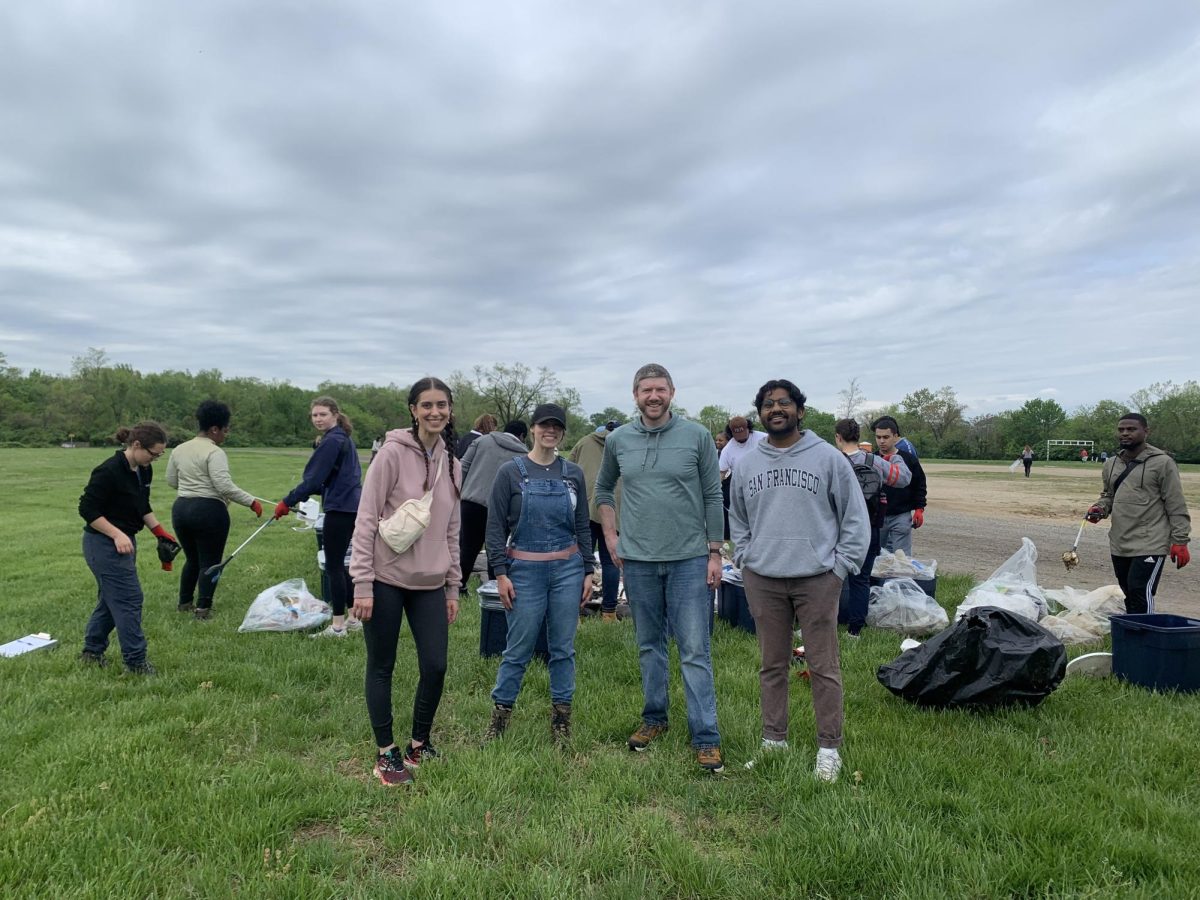The Religious Freedom Project at the Berkley Center for Religion, Peace and World Affairs hosted a panel discussion Tuesday with media figures and experts on religious freedom about the increased intolerance toward religion-based and conservative viewpoints on college campuses.
The discussion in Copley Formal Lounge, which was entitled “Illiberal Liberalism? The Fate of Religious Freedom in the Public Square,” included panelists such as USA Today writer and Fox News contributor Kirsten Powers, sociology professor at Pitzer College Phil Zuckerman and Southern Baptist Ethics and Religious Liberty Commission President Russell Moore.
Associate Director of the RFP Timothy Shah, who moderated the panel, pointed out recent trends on the decline in freedom of speech in American society. Shah cited a recent Pew Research Center study, which shows that the United States’ restrictions on free expression have risen from ‘low’ to ‘moderate’ over the last six years, specifically with regard to religion.
“The fact that the U.S. is in the middle range of some 200 of the world’s countries is pretty shocking,” Shah said. “[The U.S. is] a country that traditionally prides itself on its respect for religious freedom … [and] ranked religious freedom as the first freedom.”
Shah asked the panelists what potential causes might be for what he described as a “crusade” against religious liberty, free expression and free speech. Shah suggested an answer by defining the phenomenon of illiberal liberalism, in which politically liberal activists aim to restrict politically conservative opinions.
“Are some self-declared liberals who are traditionally in the vanguard of defending rights to dissent … trying to close down debate rather than open it up?” Shah said. “The rights of unpopular groups to express unpopular opinions [have been lessened].”
Powers answered the question by speaking on the influence that campus speech censorship has on creating a culture of illiberal liberalism. She explained that conservative perspectives on issues such as abortion, the Affordable Care Act’s contracepation mandate and same sex marriage are dismissed and shut down.
“[Illiberal liberalism is] worse on college campuses; there’s no question about it,” Powers said. “But let’s remember where the people on campuses are going to end up. They’re going to end up in our culture.”
Powers, whose book, “The Silencing: How The Left is Killing Free Speech,” documents the trend among college students to be intolerant toward individuals who criticize or disagree with politically liberal principles, said that this prevailing attitude among college students has caused a larger intolerance in society.
“They are being taught at a lot of universities that certain views just are off-limits,” Powers said. “[These include] that you shouldn’t offend certain people, and it’s a one-way street … [But] it’s just certain people who can’t be offended.”
Powers attributed much of this ideology to a concept called liberal care ethic, which dictates that all political opinions should be based on providing for marginalized groups.
“Liberals have endorsed this idea of a care ethic where everything is about care for marginalized groups,” Powers said. “They’ve been imbued with this ideology which makes them more sympathetic when people complain.”
Zuckerman said he generally agreed with Powers’ diagnosis of campus speech culture, but directed certain criticisms toward Powers’ book, including what he perceived as the lack of sufficient statistics and data in place of anecdotal evidence. Zuckerman explained that Powers also neglected to point out the similarities between intolerant liberals and fundamentalists on the Christian right.
“Illiberal liberalism made me think of another thing that I would call the Christian right,” Zuckerman said. “I’ve read the teachings of Jesus, I read everything Jesus said and the Christian right violates that.”
Moore responded to Zuckerman by suggesting that while Christian Evangelicals may feed into the narrative of intolerance, the left is more responsible for hypocrisy because it defines popular culture on college campuses.
“I think that on college campuses, in order to really be identified as a progressive, free-thinking, forward-directed person, then you have to take on this sort of crusade,” Moore said. “[If not], you’re out of the tribe.”
Powers’ advice for students who feel that their ideas are being unfairly neglected is to continue to make their voices heard.
“Ideas aren’t dangerous. They’re not going to harm you. They’re words, and you can respond to those words with arguments,” Powers said. “I think it’s a real red flag if someone has to completely silence your point of view.”
Rob Kem (COL ’18), who attended the event, said that the debate was a model for future discussions between liberals and conservatives on free speech.
“It was really respectful. They disagreed, but they didn’t ever call an idea stupid,” Kem said. “They gave evidence and stated their arguments.”
Kem said that censoring free speech at college, no matter how controversial the matter at hand is, should not be tolerated.
“You always hear things in the news of people being disinvited to speak at colleges because of a specific viewpoint they have,” Kem said. “That’s antithetical to what a college should be where the best ideas will rise to the top naturally in the marketplace of ideas.”














